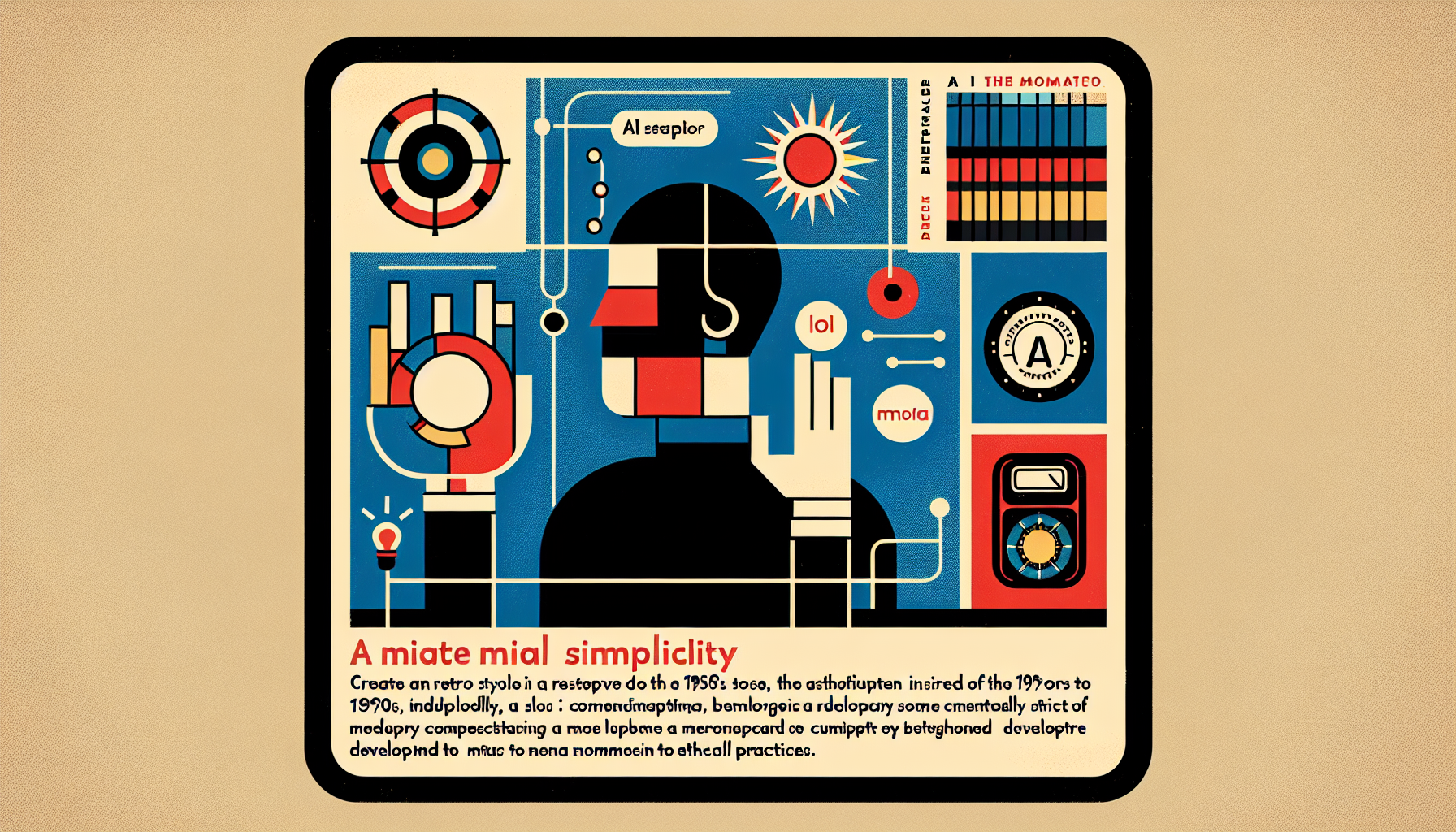As we stand on the brink of the AI revolution, the role of AI developers becomes not only that of coders and engineers, but something far more profound. Much akin to the craftsman of ancient times who understood the social impact of their creations, today’s AI developers are shaping the future of human interaction, work, and existential experience. The pressing concern? How to craft this future with a moral compass firmly in hand.
The Ethical Blueprint
Before diving into the moral responsibility AI developers shoulder, let’s establish an elementary fact: AI is not sentient. Sorry to disappoint the sci-fi aficionados, but your smart speaker isn’t daydreaming about overthrowing humanity. Instead, AI sees with the eyes we give it and acts within the boundaries we set. Thus, the moral responsibility falls on those who create the algorithms, much like a director controlling a marionette.
AI developers must start with an ethical blueprint, acknowledging the weight of potential influence and consciously embedding moral considerations from the very first line of code. The saying “with great power comes great responsibility” may sound alarmingly like a superhero catchphrase, but in the coding world, it couldn’t be more true. Developers, you are the superheroes here, capes unfortunately not included.
Unbiased Decisions in a Biased World
One of the most vexing challenges in AI development is preventing the perpetuation or amplification of societal biases. AI systems trained on biased data can result in discriminatory behaviour, essentially giving them a twisted sense of ethics reminiscent of an overzealous hall monitor. Ignoring this risk creates a massive moral blind spot, similar to driving in circles with the world’s largest bumper car, blindfolded.
The responsibility thus lies in selecting training data with the utmost care, implementing continuous bias-checks, and approaching the training process with critical scrutiny. This calls for diverse teams that can spot these biases before the AI system decides, for instance, that all cats should be classified as “small sofas”. (Which, admittedly, might not be the worst outcome.)
Privacy: To Share or Not to Share
In the digital age, privacy often feels like an elusive concept—almost as if trying to catch smoke with a butterfly net. With the capabilities of AI to analyze and make sense of vast amounts of data, developers find themselves at the crux of another ethical dilemma: how much data is it ethical to collect and share?
The onus lies on developers to adopt “privacy by design.” It involves creating systems that, by their very architecture, shield personal data as if it were the crown jewels. After all, nobody wants their latest web searches broadcasted like last night’s karaoke performance, especially if pitch accuracy parallels privacy breaches.
Accountability: The Buck Stops Here
When AI systems malfunction or make mistakes, pinpointing accountability becomes as tricky as playing a game of ‘Whodunit’ with an invisible participant. Developers must anticipate the failure points in AI systems, ensuring mechanisms for accountability and redress. The key is fostering transparency—building systems where decisions can be traced, much like following a trail of digital breadcrumbs.
Accountability, when shared among developers, users, and society at large, ensures no party feels like they’re lingering unwittingly in a game of “hot potato” with an ethical dilemma. After all, pinning responsibility solely on the system itself is like blaming spellcheck for life’s typos. The human touch—or lack thereof—remains a decisive factor.
Empathy: The Human Element
For our AI creations to resonate with their ethical duty, empathy must be a guiding principle behind their development. Developers should see beyond the logical matrix and consider the emotional and societal implications of each decision. This requires what might be considered an artistic touch in a scientific realm.
Empathy ensures that AI systems offer humane solutions, crafted with an understanding of the real-world impact. By fostering a development culture that prioritizes empathy, developers act less like cold engineers of a bright new future and more like philosophers framing questions about today.
Join the Dialogue
Finally, crafting the future responsibly doesn’t occur in a vacuum. Developers should actively engage in societal discourse, inviting diverse perspectives onto the table. Open dialogue with ethicists, psychologists, users, and even a meddlesome philosopher or two can enhance understanding, ensuring AI designs don’t just fit snugly within a frame of innovation but expand it insightfully.
In a rapidly evolving world, the moral responsibility of AI developers bridges innovation with accountability. It represents the conscious crafting of our digital future—a task that requires wisdom, vigilance, and a dash of humor. After all, when the lines of code you write today could influence generations tomorrow, it’s best to approach the task with the seriousness it deserves, and just the right amount of whimsy to make you ponder the curiosity of cats classified as “small sofas.”

Leave a Reply